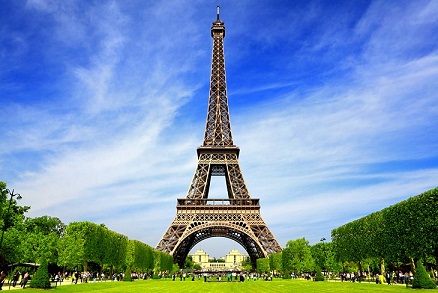Beginning June 9, France has rolled out a plan to start once again welcoming vaccinated Europeans and international leisure travellers from most of the rest of the world, including the United States, effectively restarting transatlantic tourism following a 15-month pause, although non-Europeans will need to be carrying a negative test in hand.
The relaxed rules will offer a welcome boost for France’s tourism sector, but tourists from countries wrestling with active viral circulation and concerning variants will need a compelling reason for their visit and adhere to a set of strict conditions. This “red list” currently has 16 countries, including India, South Africa and Brazil and Argentina.
Outside of Europe, most of the rest of the world is classed as “orange” in the new travel rulebook released Friday by the French government.Vaccinated visitors from “orange” countries – including the United States and Britain – will no longer need to quarantine on arrival and will no longer need to justify the reasons for their trip to France. Though, they will be asked for a negative PCR test no older than 72 hours or a negative antigen test of no more than 48 hours. If unvaccinated, they’ll also be required to complete a seven-day self-isolation period.
Vaccinated European visitors and those from seven countries classed as “green” – Australia, South Korea, Israel, Japan, Lebanon, New Zealand and Singapore – will no longer need to undergo testing if they’re vaccinated. If unvaccinated, they’ll need to provide a PCR or antigen test taken within the past 72 hours but won’t have to quarantine upon arrival.
According to report, the French Foreign Ministry did not articulate exactly how U.S. travelers would be expected to prove their vaccination status. The European Union (E.U.) has approved the launch of a shared digital COVID certificate that will be accepted by all of its member nations, but which foreigners presumably won’t have access to.
The new travel rulebook does note that travelers will need to have completed their full vaccination schedule, meaning that the appropriate period has elapsed following administration of their final dose sufficient to achieve full immunity (two weeks for Pfizer and Moderna and four weeks for Johnson & Johnson vaccines).

